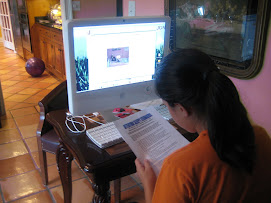
In a recent research, an association between sleep deprivation and poorer grades has been revealed. In a 1998 survey of more than 3,000 high school students, psychologists Amy R. Wolfson, PhD, of the College of Holy Cross, AND Mary A. Carskadon, PhD, of Brown University Medical School, found that students who reported that they were getting C's, D's and F's in school obtained about 25 minutes less sleep and went to bed about 40 minutes later than students who reported that they were getting A's and B's.
In August of 1998, researchers at the University of Minnesota reported the results of a study of more than 7,000 high school students whose schools had switched from a 7:15 a.m. start time to an 8:40 a.m. start time. Compared with students whose schools maintained earlier start times, students with later starts reported getting more sleep on school nights, being less sleepy during the day, getting slightly higher grades and experiencing fewer depressive feelings and behaviors.
Kaylyn Reinhold






